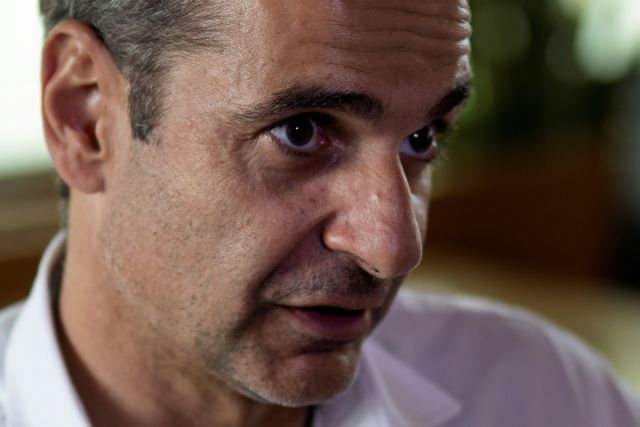By Renee Maltezou
For all he never jumps a red light in traffic, Greek conservative leader Kyriakos Mitsotakis says he is poised for a big leap forward in next Sunday’s national elections.
The 51-year politician, priming himself to lead Greece for the next four years, wants to breathe new life into the economy and shed the country’s image as Europe’s problem child after three bailouts since 2010. Opinion polls show his New Democracy party leading Prime Minister Alexis Tsipras’ ruling leftist Syriza party ahead of the vote.
“The first thing that is necessary for economic growth to be boosted is a stable government, a strong majority in the next parliament,” Mitsotakis told Reuters during a whirlwind tour of northern Greece on June 28.
“If we are able to reach that goal, and I’m very optimistic, I think that we’ll send a very clear signal that we have four years ahead of us, without any additional elections to deliver on our plans.”
Opinion polls suggest Sunday’s election may not produce a clear winner, although Costas Panagopoulos, head of ALCO pollsters, says the most likely scenario is that Mitsotakis will win a majority. The conservative leader has been urging voters recently to give him a clear majority but has also said in the past that he is open to alliances.
Tsipras called the early election after the defeat of his Syriza party by New Democracy in European Parliament and local election.
Covering more than 1,100 km (700 miles) in 14 hours by airplane and car, Mitsotakis was unflappable as he visited soldiers in Evros, at the border with Turkey, garlic and silk producers in towns nearby, and families on the streets in one of Greece’s poorest regions.
‘Jolt’ the economy
A Harvard-educated ex-banker who gave up a career in the financial sector for politics, he did not deviate from his schedule an inch although his motorcade had to stop at every red light on the way. But he talks of revving up the country, saying the only way to “jolt the Greek economy into a different growth trajectory” is with reforms and investments.
He has promised jobs, a crackdown on crime as well as more funds and help from Europe for a country that has seen huge inflows of refugees in recent years and tensions with Turkey.
He wants to unblock privatizations, reduce what he calls the state’s needlessly large footprint and make sure that Greece borrows at the same cost as other European countries. He also plans to hold “an honest discussion” with European lenders to reduce Greece’s 3.5 percent annual primary surplus target in 2020-2022, a move that would allow further tax cuts.
Among the challenges Mitsotakis, the son of a former prime minister, faces are likely strong opposition from unions and the prospect of street protests over plans such as outsourcing public services. His party, which was founded in 1974, may also resist his effort to bring new people on board.
“I want a country that first of all is going to be very optimistic about its bright future,” said Mitsotakis. “I set my ambitions very high … we are ready for a big leap forward.”
In return, he has been calling on voters to give him a clear victory against Tsipras, who was catapulted to power in 2015 promising to end austerity but then signed up to a third bailout.
He also wants voters to reject far-right parties tapping into Greeks’ hurt pride and anger after years of austerity and an accord with Skopje over the name of North Macedonia.
After years of fragile coalitions, Mitsotakis could become the first prime minister of a one-party government in nearly a decade, allowing him to implement his plan with reduced risk of being hampered by political constraints.
Mitsotakis said he had learned a lot in talking to Greeks.
“I’ve spoken to tens of thousands of people to listen to their anguish,” he said. “But I’m always very aware of their dreams and the aspirations of the Greek people. We have had the time to change the party.”




